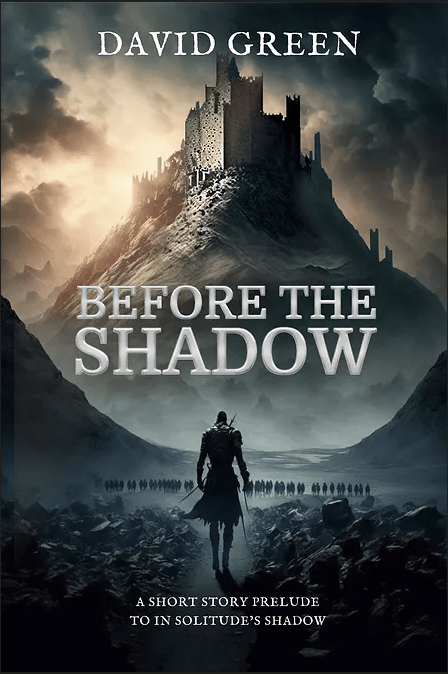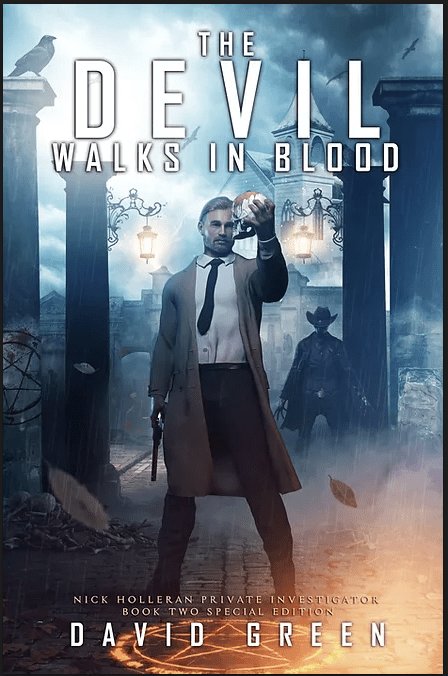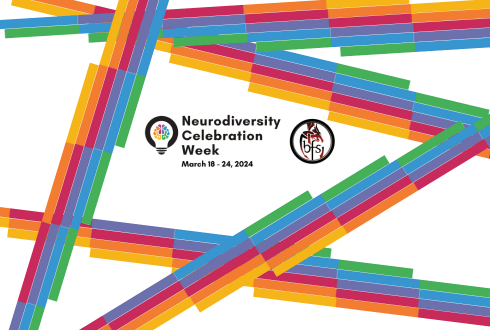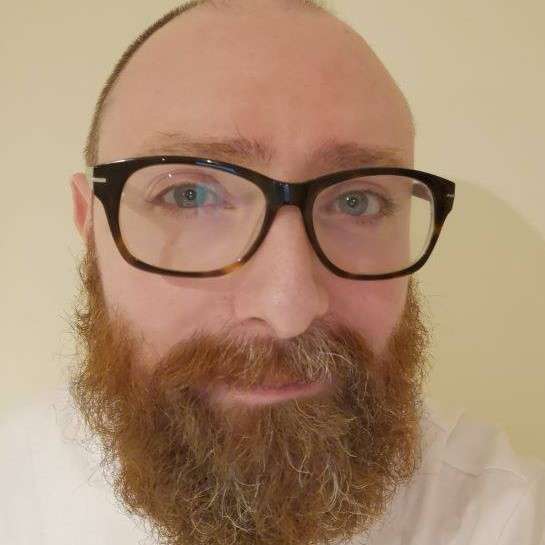Continuing our celebration of neurodiverse writers as the UK celebrates Neurodiversity Week, here BFS Secretary David Green is searingly honest about what it’s like to be autistic and a writer—especially one who writes about neurodiverse characters.
Believe me, I really wish I could say the following exchange is completely made up. Or exaggerated. Or even a one off. Sadly, the ensuing conversation happens – almost word for word – all too often.
“Your son is so chatty for an autistic person!â€
“Well, not everyone with autism is—â€
“He’s not like autistic people I’ve seen on TV. But then I’ve never really met anyone with autism.â€
“I’m autistic, too.â€
“Really? Wow. You don’t look autistic.â€
“There isn’t really an autistic look, and that’s quite—â€
“But aren’t we all a bit autistic?â€
“No, we’re not. Lots of people share traits that autistic people would have, but not everyone is—â€
“It’s a spectrum, isn’t it? Aren’t we all on the spectrum somewhere?â€
“We don’t really call it a spectrum anymore, and no. Not everyone is—â€
“You can’t be autistic. You’re so normal.â€
Little do they know I’ve worked damned hard at appearing ‘normal’, a terrible phrase that’s usually said without harm, but it causes lots. In writing terms, I’ve heard the word ‘traditional’ used instead. ‘Conventional’, too. It largely means the same: “you seem like everyone else who isn’t ‘other’/your character fits in this well-established box.â€
The ‘if you’re not normal, then you’re different and not as worthwhile’ goes unsaid, but, trust me, it’s heard all too loudly. And extremely clear.
My diagnosis for autism came late in life, meaning I’ve learned to mask my ‘un-normalness’ for most of my years. It doesn’t come easily, and joining in with the other parents at my son’s weekly Superhero Training classes (dancing and gymnastics, basically), takes a couple of hours of mental preparation, as well as having a handy supply of items nearby in case my precautions haven’t been enough.
And secret stimming. Lots of secret stimming.
Awareness and education for neurodiversity isn’t great, to put it mildly. Recently, I read an email where an autistic character I created was constantly referred to as “the ‘neuro diverse’ protagonistâ€.

On the whole, I truly believe that people are well-meaning, but, thanks to mass-media, autistic people are usually seen as either Sheldon Cooper (pictured left) or Rain Man. Still. In 2024. And for those of us (the vast, vast majority) who are like neither of those neurotypical-fashioned ideas of what neurodiversity is, for those of us who come in many shapes, sizes, interests, and flavours, we’re left to field such surprised exclamations as ‘You don’t look autistic’ or the more sour, ‘There was never any autism in my day’ with, in my experience, alarming and depressing frequency.
So, as an autistic writer, I write.
As an autistic writer, I write worlds I can understand. Ones that make sense to me, even if they don’t make sense to my neurodivergent characters. Because, the real world often doesn’t make a lick of sense at all.
As an autistic writer, I write stories where my neurodivergent characters find solace in one another, and they discover their purposes in life. They feel wanted. Worthwhile. Because neurodivergent alienation is real and hard.
As an autistic writer, I write characters who struggle with being assaulted with too much noise all at once. Who find the simple question of ‘How are you?’ one of the most difficult to surmount queries humanity (or otherwise) has ever faced. I write characters who show the toll of their constant masking in their attempts to ‘fit in and be normal’, but who also cherish the moments of pure love and joy we autistic people carve out for ourselves every single day. Because that’s how we get through every single day.
As an autistic writer, I try to show how the obvious to the neurotypicals are anything but for the neurodivergent. With my words, I do my best to bring the reader – neurotypical or neurodivergent – into a world built from my experience, warts and all, in an attempt to use my voice and show what the autistic experience is. With added elves. And magic. Sometimes dragons, too.


As an autistic writer, I let my neurodivergent characters explore their special interests and let these things inform the worlds and stories within the pages. There are maps, books, tea. Other neurodivergent writers I’ve read base narratives around language, insects, rocks, stones, and crystals… We do this so we can understand and express ourselves in a way that makes sense to us, but also so people like us feel heard and seen. And the people who aren’t? So they might understand those people in their lives who are also of the ‘other’.
As an autistic writer, I strive to show that people like me are filled with empathy. Because, in my experience, we are. Many of us have so much, it chokes us up, and we don’t know how to express it. Because we were told, back in our youth, that the way we showed joy, happiness, curiosity or empathy was ‘the wrong way’. But, after living with my autism, and seeing my son grow, I can tell you there is no empathy, curiosity, happiness or joy like an autistic person has. And I try my absolute best to write that.
Because words are important. Words are powerful. Words have so much meaning to so many people across all kinds of life.
But then…
“Why is your character so frustrating? Why can’t your character understand the obvious?â€
“Well, it might be obvious to you, but it isn’t obvious to—â€
“I don’t find this reaction realistic.â€
“Believe me, I reacted in this exact way just last week, and it wasn’t the—â€
“I think I’d warm to the character more if their edges were smoothed out. Maybe make them more traditional and conventional.â€
Again, I wish I could say the above conversation was made-up. Or an exaggeration. Sadly, it’s neither. But hopefully, it isn’t an exchange I’ll find myself in on a regular basis.
Even if I do, I’ll keep on writing. Why? Because people like me aren’t all like Sheldon Cooper or Rain Main. People like me often can’t see the obvious. People like me do struggle and face challenges with ‘the simple things’.
We overcome them, though. We have to.
And, frankly, people like me aren’t like me at all, for the most part. Sure, I share many traits with lots of autistic people I know – and every conversation with another autistic person is a treasure I cherish – but they’re just as different to me as I am to anyone else.
And that is why I write. I write to share my experience – as well as to create stories people will hopefully enjoy, filled with strange but wonderful worlds, lived in by fully-realised characters of the ‘other’. I write to share my experience so that other neurodivergent people might feel seen and heard, and that they might feel there’s a space for them to share their experience, too. Because, if nothing else, I want to learn from them. And, with our voices, we can show how different we actually are. And why those differences are great.
Because words are important, right? Words are powerful. Words have so much meaning to so many people across all kinds of life. And, as writers, our words are gifts to anyone who reads them. Neurodivergent or otherwise.
David is represented by Laura Bennett at Liverpool Literary Agency, and his website is www.davidgreenwriter.com


